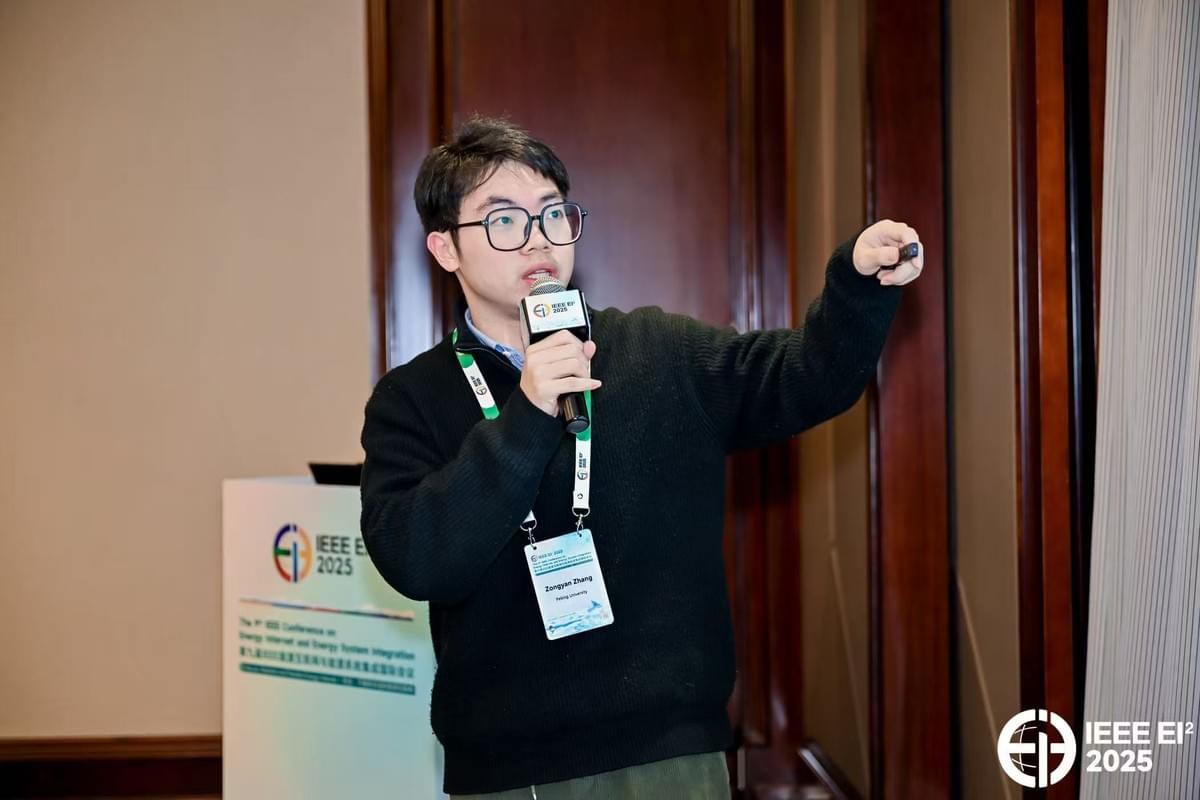


Welcome to the IDEAL Lab !
The Intelligent DEcision-mAking for Low carbon energy systems (IDEAL) Lab, led by Prof. Mingyang Sun at the College of Engineering, Peking University, envisions a future where advanced decision-making technologies and intelligent systems drive the transition to sustainable, resilient and low-carbon energy solutions.
Missions
The mission of the IDEAL Lab is to develop and implement intelligent decision-making frameworks that optimize the performance and integration of low-carbon energy systems. The lab strives to:
- Advance Research: Conduct pioneering research in artificial intelligence, machine learning, and data analytics to enhance the efficiency and reliability of low-carbon energy technologies.
- Promote Sustainability: Design and deploy innovative solutions that reduce carbon emissions and support the global shift towards renewable energy sources.
- Educate and Empower: Provide high-quality education and training to students, researchers, and industry professionals, equipping them with the skills and knowledge necessary to lead the energy transition.
- Collaborate Globally: Foster interdisciplinary and international collaborations with academic institutions, industry partners, and government agencies to drive the development and adoption of sustainable energy solutions.
- Influence Policy: Inform and influence energy policy and regulatory frameworks through rigorous research and evidence-based insights, advocating for policies that support low-carbon energy systems.
IDEAL Lab's research is supported by:


News
- Dec. 2025: Congratulations to Haochi Wu for having our paper accepted by Nature Climate Change!
- Nov. 2025: Congratulations to Haochi Wu for having our paper accepted by Cell The Innovation!
- Oct. 2025: Congratulations to Haochi Wu for having our paper accepted by Joule!
- Sep. 2025: Congratulations to PhD student Zhenghao Yang for having our paper accepted by ICAE 2025!
- Sep. 2025: Warmly welcome Prof.Peter Plensky and his team from TU Delft for their visit to IDEAL Lab!
- Sep. 2025: Warmly welcome Prof. Pierluigi Mancarella from the University of Melbourne for his visit to IDEAL Lab!
- Sep. 2025: Congratulations to PhD student Xu Wan for having our paper accepted by NeurIPS 2025!
- Aug. 2025: Congratulations to PhD student Haochi Wu for starting his postdoc position at Stanford University!
- Aug. 2025: Congratulations to PhD student Ze Yu for having our paper accepted by IEEE Transactions on Smart Grid!
- Aug. 2025: Congratulations to PhD student Ke Zuo for having our paper accepted by IEEE Transactions on Power Systems!
- Aug. 2025: Professor Mingyang Sun has been appointed as the Advisor for Peking University IEEE PES Student Branch Chapter!
- Aug. 2025: Professor Mingyang Sun has been appointed as the Senior PC for AAAI 26!
- Jul. 2025: Warmly welcome Prof.Sarah Spurgeon, Prof. Boli Chen, and Prof. Yukun Hu from University College of London for their visit to IDEAL Lab!
- Jun. 2025: Congratulations to PhD student Quan Yuan for having our paper accepted by IEEE Transactions on Smart Grid!
- May. 2025: Congratulations to PhD student Xu Wan for having our paper accepted by ICML 2025!
- Mar. 2025: Congratulations to PhD student Chao Shen for having our paper accepted by IEEE Transactions on Industrial Informatics!
- Mar. 2025: Congratulations to PhD student Chao Shen for having our paper accepted by IEEE Transactions on Power Systems!Feb.2025: Professor Mingyang Sun is starting a new position as Associate Editor at IEEE Transactions on Power Systems!
- Dec. 2024: Congratulations to PhD student Qiliang Jiang for having our paper accepted by IEEE Transactions on Power Systems!
- Dec. 2024: Congratulations to PhD student Xu Wan for having our paper accepted by AAAI 2025!Dec. 2024: Congratulations to PhD student Haochi Wu for having our paper accepted by Engineering!
- Nov. 2024: Congratulations to PhD student Xu Wan for having our paper accepted by IEEE Transactions on Power Systems!Oct. 2025: Warmly welcome Prof. Tim Green from Imperial College London and Prof. Jerry Yan from PolyU, for their visit to IDEAL Lab!
- Aug. 2024: Warmly welcome Professor Goran Strbac and Professor Fei Teng from Imperial College London, and Professor Pei Zhang from Tianjin University, for their visit to IDEAL Lab!
- Aug. 2024: Congratulations to PhD student Haochi Wu for being selected as one of the MES Fellows!
- Jul. 2024: Congratulations to PhD student Haochi Wu for having our paper accepted by Applied Energy!
- May 2024: Congratulations to PhD student Ke Zuo for having our paper accepted by IEEE Transactions on Smart Grid!
- Nov. 2023: Congratulations to PhD student Zeng Lanting for receiving the National Scholarship for the 2022-2023 academic year!
- Jul. 2023: Congratulations to our research group for having our paper accepted by Nature Communications!
- Mar. 2023: Congratulations to PhD student Zuo Ke for having his paper accepted by IEEE IoT Journal!
- Dec. 2022: Congratulations to Dr. Zhang Tingqi for having his paper accepted by IEEE Transactions on Power Systems!
- Dec. 2022: Congratulations to Xue Juxing for having his paper accepted by Applied Energy!
- Dec. 2022: Congratulations to postdoctoral fellow Bi Jichao for winning the Best Paper Award at IEEE TrustCom 2022 and for joining the Zhejiang Provincial Institute of Industrial and Information Technology as an Associate Researcher!
- Nov. 2022: Congratulations to master's student Wan Xu for having his paper accepted by the flagship conference in the artificial intelligence field, AAAI!
- Nov. 2022: Congratulations to Chen Yan and Wu Haochi for successfully applying for the PhD program and will start their PhD studies in 2023!
- Oct. 2022: Congratulations to Wan Xu for receiving the National Scholarship for the 2021-2022 academic year!
- Sep. 2022: Congratulations to Wan Xu for winning the second prize in the East China Division of the 17th "GigaDevice Cup" China Graduate Electronic Design Competition in 2022!
- Sep. 2022: Congratulations to Chen Yan for having her paper accepted by the top journal in the power systems field, IEEE Transactions on Smart Grid!
- Aug. 2022: Congratulations to Wan Xu for winning the first prize in the graduate group of the 3rd "HuaShu Cup" National College Student Mathematical Modeling Competition in 2022!
- Jul. 2022: Congratulations to Chen Yan for having his invention patent granted.
- Jul. 2022: Congratulations to PhD students Zeng Lanting and Wan Xu for having their paper accepted by the top journal in the power systems field, IEEE Transactions on Power Systems!
- Jul. 2022: Congratulations to PhD student Zeng Lanting for having her paper accepted by the top journal in the energy field, Applied Energy!
- Jul. 2022: Congratulations to postdoctoral fellow Bi Jichao for having his paper accepted by the top journal in the security field, IEEE Transactions on Information Forensics and Security!
- Jun. 2022: Congratulations to Wan Xu for winning the second prize in the graduate group of the National MathorCup College Mathematical Modeling Challenge!
- Jun. 2022: Congratulations to PhD student Pu Hongyi for graduating and joining Huawei!
- May 2022: Congratulations to postdoctoral fellow Bi Jichao for having his paper accepted by the top journal in the power systems field, IEEE Transactions on Smart Grid!
- Apr. 2022: Congratulations to PhD student Pu Hongyi for having his paper accepted by IEEE Network Magazine!
- Apr. 2022: Congratulations to PhD students Wan Xu and Zeng Lanting for having their paper accepted by the flagship conference in the artificial intelligence field, IJCAI (CCF-A)!
- Apr. 2022: Congratulations to postdoctoral fellow Zhang Zhenyong (currently a distinguished professor at Guizhou University) for having his paper accepted by the top journal in the power systems field, IEEE Transactions on Power Systems!
- Dec. 2021: Congratulations to PhD students Zuo Ke, Chen Yan and Xue Juxing for being named Outstanding Graduate Students of Zhejiang University for the 2020-2021 academic year!
- Nov. 2021: Congratulations to Wan Xu for winning the third prize in the graduate group of the China College Big Data Challenge!
- Sep.2021: Congratulations to undergraduate student Liu Wu'ao for enrolling at the University of Michigan to pursue a master's degree!
- Aug. 2021: Congratulations to Imperial College London PhD student Federica Bellizio for having her paper accepted by Electric Power Systems Research!
- Jul. 2021: Congratulations to master's student Chen Yan for having his software copyright application approved.
- Mar. 2021: Congratulations to Imperial College London PhD student Zhang Tingqi for obtaining his PhD and soon joining the State Grid Corporation (Liaoning)!
- Feb. 2021: Congratulations to Imperial College London PhD student Zhang Tingqi for having his paper accepted by the top journal in the power systems field, IEEE Transactions on Power Systems!
Our Research
By integrating cutting-edge research in artificial intelligence, data analytics, and energy systems engineering, the IDEAL Lab aims to be a global leader in fostering innovations that promote environmental sustainability, economic viability, and energy security.

Physics-integrated Data-Driven Methods for Low Carbon Energy Systems Operation and Control with Safety Guarantee
The real-world implementation of DRL-based operation and control methods is facing the following fundamental challenges: 1) performance guarantee under modeling and parameter uncertainties between simulated and real-world inverter-connected energy systems; 2) safety guarantee (do not violate the energy system's physical constraints) during the learning and decision-making processes; and 3) adaptability against the dynamic system operating conditions. To this end, we propose a series of physics-informed Adaptive and Safe-Certified DRL (AdapSafe) algorithms for system operation and control to address the aforementioned challenges simultaneously.
- X. Wan, M. Sun*(Corresponding Author), etc., “AdapSafe: Adaptive and Safe-Certified Deep Reinforcement Learning-Based Frequency Control for Carbon-neutral Power Systems”, in AAAI-23, Washington, US, 2023.
- X. Wan, M. Sun*(Corresponding Author), “AdapSafe2: Prior-free Safe-certified Reinforcement Learning for Multi-Area Frequency Control”, in IEEE Transactions on Power Systems, 2025.
- L. Zeng, M. Sun*(Corresponding Author), “Bridge the Sim-to-Real Gap for Deep Reinforcement Learning-based Frequency Control”, in IEEE Transactions on Power Systems, Under Revision.
- X. Wan, C. Yang, C. Yang, J. Song, M. Sun*(Corresponding Author), “Fuzzify Uncertainty: Leverage Fuzzy-Logic for Robust Safe Reinforcement Learning”, in NeurIPS 2025, 2025.
- Y. Wang, D. Qiu, M. Sun, G. Strbac, Z. Gao, “Secure energy management of multi-energy microgrid: A physical-informed safe reinforcement learning approach”, in Applied Energy, vol. 335, 120759, 2023.

Probabilistic Deep Learning-based Dynamic Security Assessment of Large-Scale Low Carbon Electrical System with High Interpretability
The ongoing decarbonization of modern electricity systems has led to a substantial increase in operational uncertainty, particularly due to the large-scale integration of renewable energy generation. However, the expanding space of possible operating points renders necessary the development of novel data-driven probabilistic security assessment approaches. Furthermore, a better understanding of confidence in the security assessment result is of key importance for Transmission System Operators (TSOs) to use and rely on these deep learning methods with high interpretability.
- M. Sun, I. Konstantelos and G. Strbac, "A Deep Learning-Based Feature Extraction Framework for System Security Assessment," in IEEE Transactions on Smart Grid, vol. 10, no. 5, pp. 5007-5020, Sep. 2019.
- I. Konstantelos, M. Sun*(Corresponding Author), etc., "Using Vine Copulas to Generate Representative System States for Machine Learning," in IEEE Transactions on Power Systems, vol. 34, no. 1, pp. 225-235, Jan. 2019.
- T. Zhang, M. Sun*(Corresponding Author), etc., "A Confidence-Aware Machine Learning Framework for Dynamic Security Assessment," in IEEE Transactions on Power Systems, vol. 36, no. 5, pp. 3907-3920, Sept. 2021.
- F. Bellizio, J. Cremer, M. Sun*(Corresponding Author), G. Strbac, "A Causality Based Feature Selection Approach for Data-Driven Dynamic Security Assessment", in Electric Power Systems Research, vol. 201, 107537, 2021.
- Z. Zhang, M. Sun*(Corresponding Author), etc., "Physics-Constrained Robustness Evaluation of Intelligent Security Assessment for Power Systems," in IEEE Transactions on Power Systems, vol. 38, no. 1, pp. 872-884, Jan. 2023.

Objective-based Vulnerability Assessment and Resilience Enhancement for Low Carbon Energy Systems Operation and Control
Although the benefits of using Machine learning (ML) approaches to realize the power system autonomous operation and control have been partially uncovered, the vulnerabilities or risks of ML-based power system operation and control models have not been fully explored. It has been recognized that the ML model is vulnerable to adversarial examples, and the power system communication network is prone to cyber-attacks. Moreover, most of the existing works neglect the bad data detection mechanism and energy system physical constraints among the state variables.
- L. Zeng, M. Sun*(Corresponding Author), etc., "Physics-Constrained Vulnerability Assessment of Deep Reinforcement Learning-Based SCOPF," in IEEE Transactions on Power Systems, vol. 38, no. 3, pp. 2690-2704, May 2023.
- Y. Chen, M. Sun*(Corresponding Author), etc., "Vulnerability and Impact of Machine Learning-Based Inertia Forecasting Under Cost-Oriented Data Integrity Attack," in IEEE Transactions on Smart Grid, vol. 14, no. 3, pp. 2275-2287, May 2023.
- K. Zuo, M. Sun*(Corresponding Author), etc., "Transferability-Oriented Adversarial Robust Security-Constrained Optimal Power Flow," in IEEE Transactions on Smart Grid, doi: 10.1109/TSG.2024.3397654.
- Z. Zhang, K. Zuo, R. Deng, F. Teng and M. Sun*(Corresponding Author), "Cybersecurity Analysis of Data-Driven Power System Stability Assessment," in IEEE Internet of Things Journal, vol. 10, no. 17, pp. 15723-15735, 1 Sept.1, 2023.
- L. Zeng, D. Qiu, M. Sun*(Corresponding Author), “Resilience enhancement of multi-agent reinforcement learning-based demand response against adversarial attacks,” in Applied Energy, vol. 324, 119688, 2022.

Data-driven Energy Consumer Characterization and Privacy Protection
The wide deployment of Advanced Metering Infrastructures (AMIs) in smart energy systems provides valuable opportunities to characterize energy consumers and fully understand their consumption behaviours by exploiting the massive amount of fine-grained data and cutting-edge artificial intelligence technologies. On the other hand, consumers may not want to share their actual data information with the system operators for decision-making due to privacy concerns.
- M. Sun, T. Zhang, Y. Wang, G. Strbac and C. Kang, "Using Bayesian Deep Learning to Capture Uncertainty for Residential Net Load Forecasting," in IEEE Transactions on Power Systems. vol. 35, no. 1, pp. 188-201, Jan. 2020.
- M. Sun, I. Konstantelos and G. Strbac, "C-Vine Copula Mixture Model for Clustering of Residential Electrical Load Pattern Data," in IEEE Transactions on Power Systems, vol. 32, no. 3, pp. 2382-2393, May 2017.
- M. Sun, Y. Wang, G. Strbac and C. Kang, "Probabilistic Peak Load Estimation in Smart Cities Using Smart Meter Data," in IEEE Transactions on Industrial Electronics, vol. 66, no. 2, pp. 1608-1618, Feb. 2019.
- M. Sun, Y. Wang, F. Teng, Y. Ye, G. Strbac and C. Kang, "Clustering-Based Residential Baseline Estimation: A Probabilistic Perspective," in IEEE Transactions on Smart Grid. vol. 10, no. 6, pp. 6014-6028, Nov. 2019.
- Q. Yuan, M. Sun*(Corresponding Author), Y. Sheng and Q. Guo, "PrivCPM: Privacy-Preserving Cooperative Pricing Mechanism in Coupled Power-Traffic Networks," in IEEE Transactions on Smart Grid, doi: 10.1109/TSG.2024.3406572.

Scenario Reduction for Large-Scale Energy System Planning
Energy system investment planning problems become intractable due to the vast variability that characterizes system operation and the increasing complexity of the optimization model to capture the characteristics of renewable energy sources (RES). In this context, making optimal investment decisions by considering every operating period is unrealistic and inefficient. Therefore, one of the most effective solutions is to select a limited number of representative scenarios. To this end, three major research questions are pointed out and investigated: 1) Which variables should the clustering be based on? The choice can include combinations of variables in the input domain (e.g. demand and/or renewable injection) and in the decision domain (e.g. lines built or investment cost); 2) Which is the most appropriate clustering technique to be applied for a chosen set of variables (e.g. centroid methods, mixture models, etc.); 3) After clustering the different scenarios, how to select the representative profile of each cluster (e.g. mean value or median point).
- M. Sun, F. Teng, X. Zhang, G. Strbac and D. Pudjianto, "Data-Driven Representative Day Selection for Investment Decisions: A Cost-Oriented Approach," in IEEE Transactions on Power Systems, vol. 34, no. 4, pp. 2925-2936, Jul. 2019.
- M. Sun, F. Teng, I. Konstantelos, G. Strbac, "An objective-based scenario selection method for transmission network expansion planning with multivariate stochasticity in load and renewable energy sources," in Energy, vol. 145, pp. 871-885, Feb. 2018.
- M. Sun, G. Strbac, P. Djapic, D. Pudjianto, "Preheating Quantification for Smart Hybrid Heat Pumps Considering Uncertainty," in IEEE Transactions on Industrial Informatics, vol. 15, no. 8, pp. 4753-4763, Aug. 2019.
People
Principal Investigator

Mingyang Sun
Prof. Mingyang Sun is a Professor (Research) at the Department of Industrial Engineering and Management, College of Engineering, Peking University. Also, he is an Honorary Lecturer at Imperial College London, UK. He received his Ph.D. degree in Electrical and Electronic Engineering in the Control and Power (CAP) group at Imperial College London in 2017. From 2017 to 2019, he was a Research Associate and a DSI Affiliate Fellow at Imperial College London.
His research mainly focuses on the investigation of novel Big Data Analytics and Artificial Intelligence methods for low-carbon energy systems, with a special emphasis on dealing with uncertainties arising from RES and energy consumers for system investment planning and operation. In particular, his research interests include data-driven cyber-physical energy system operation and control, smart meter data analysis, energy forecasting, flexibility quantification, and large-scale energy system investment planning. He has authored more than 100 scientific publications in Nature Climate Change, Joule, The Innovation, Nature Communications, Engineering, and leading power system journals, and top AI and security conferences, including IEEE PES Transactions, Applied Energy, NeurIPS, ICML, AAAI, IJCAI, USENIX Security, and NDSS with 4 ESI highly cited papers. Four of our papers have been awarded the Best Papers for IEEE TSG 2023, IEEE PES GM 2016, PMAPS 2016, and IEEE TrustCom 2022, respectively. Also, he has been awarded as one of the World’s Top 2% Scientists released by Stanford University. Furthermore, our paper has been awarded the Highly Cited Paper Awards 2019 of Applied Energy.
He is currently the Associate Editor, Leading Guest Editor, and Guest Editor of a series of international journals, including IEEE Transactions on Power Systems, IEEE Transactions on Industrial Informatics, Applied Energy, Advances in Applied Energy, and IET Smart Grid, etc. Furthermore, he is the PI/CO-PI for a series of key projects funded by the NSFC, National Key R&D Program of China, The Royal Society (UK), and China Association for Science and Technology. Furthermore, he was involved in many multi-partner collaborative projects and led the work regarding machine learning for trial data modelling and analysis. The projects concerned were “EU-SysFlex” (Horizon 2020, EUR20 million), “Innovative Tools for Electrical System Security within Large Areas (iTesla)”, (FP7, EUR19.4 million), and “Low Carbon London” (UK Power Networks, GBP28 million).Admin

Ms. Fei Yue
Fei obtained her Bachelor's degree in International Economics and Trade from the Beijing Institute of Technology. She is currently the Research Secretary for IDEAL-Lab.
E-mail: yuefei@pku.edu.cn
Postdoctoral Fellows

Zongyan Zhang
Zongyan Zhang received a B.S. degree in computer science and technology from the South China University of Technology, Guangzhou, China, in 2020, and the Ph.D degree in computer science and technology from the South China University of Technology, Guangzhou, China, in 2025. Dr. Zhang is currently a Postdoctoral Researcher at the School of Advanced Manufacturing and Robotics, Peking University, China. His research interests mainly include the generative model, neural network, and large language model.

Jiageng Wu
Dr. Jiageng Wu is an Assistant Research Fellow at the School of Advanced Manufacturing and Robotics, Peking University. He received his Ph.D. in Computational Mathematics from Jilin University. His research focuses on optimization modeling and algorithm design for Integrated Sensing and Communication (ISAC) systems, including nonconvex optimization, convex relaxation theory, and beamforming optimization. During his doctoral studies, he published several papers in international journals such as IEEE Transactions on Signal Processing and Journal of the Operations Research Society of China, and participated in the National Key R&D Program of China.
PhD Students and Candidates

Ke Zuo
Ke received the B.S. degree in electrical engineering and automation from Zhejiang University in 2020. He is currently pursuing the Ph.D. degree at the College of Control Science and Engineering, Zhejiang University, Hangzhou, Zhejiang, China. Since 2023, he has been a visiting researcher in Electrical and Electronic Engineering in the Control and Power (CAP) group at Imperial College London, supervised by Professor Goran Strbac. His research interests include data-driven stability assessment and control in power systems.

Yan Chen
Yan received her B.Eng. degree from the College of Control Science and Engineering, Zhejiang University in 2020. She is currently pursuing a Ph.D. degree at the College of Control Science and Engineering, Zhejiang University. Since Oct 2023, she has been a visiting researcher in Electrical and Electronic Engineering at University College London, supervised by Professor Boli Chen. Her research focuses on artificial intelligence security and machine learning in power system time-series forecasting.

Xu Wan
Xu received his B.S. degree in automation from China University of Geosciences (Wuhan) in 2021. He is currently a Ph.D. candidate at the School of Control Science and Engineering, Zhejiang University, with an expected graduation date in 2026. Since 2024, he has been a Research Intern at the Decision Intelligence Laboratory, DAMO Academy, Alibaba. His research interests include robust and safe reinforcement learning theory and its applications.

Chao Shen
Chao received his B.S. degree in Hydraulic and Hydropower Engineering from Huazhong University of Science and Technology in 2022. He is currently pursuing a Ph.D degree at the College of Control Science and Engineering, Zhejiang University, Hangzhou, Zhejiang, China. His research interests include physics-informed and interpretable data-driven approaches for power system stability assessment.

Ze Yu
Ze received his B.S. degree in Information Security from Zhejiang Gongshang University in 2022. He is currently a Ph.D. candidate at the School of Control Science and Engineering, Zhejiang University, and is expected to graduate in 2027. His research interests include cybersecurity in power systems with a high penetration of inverter-based resources.

Zhenghao Yang
Zhenghao received his B.S. degree in theoretical and applied mechanics from Peking University in 2025. He is currently pursuing a Ph.D at the School of Advanced Manufacturing and Robotics, Peking University. His research interests include energy-aware reinforcement learning and LLM-based operations research in power systems optimization.

Hongwei Zhen
Hongwei Zhen received the Bachelor's degree in Electronic Information Engineering from Zhejiang University in 2024. He is currently pursuing his Ph.D. degree at the College of Electrical Engineering, Zhejiang University. His research interest includes the security attack and defense of power electronic-based power systems and the design of effective cyberattacks combining power electronic characteristics.

Yifan Zhag
Yifan Zhang received his Bachelor's degree in Electrical Engineering and Automation from Xi'an Jiaotong University in 2026. He is currently pursuing Ph.D. at the School of Advanced Manufacturing and Robotics, Peking University, with a research focus on large language model-based self-modeling theory for power systems.
Master Students

Haibao Fang
Haibao obtained his Bachelor's degree in Electrical Engineering and Automation from Soochow University in 2022. Currently, he is pursuing a Master's degree at Zhejiang University and is expected to graduate in 2025. His research focuses on reinforcement learning for low-carbon power management and smart city development.

Zihan Guo
Zihan received his B.S. degree in Physics from Soochow University. He is studying at the College of Engineering at Peking University, with a research focus on LLM for energy systems.

Weilu Ao
Weilu obtained his Bachelor's degree in Computer Science and Technology from Harbin Institute of Technology (Shenzhen), and he is currently pursuing a Master's degree in Mechanics at Peking University, with his research mainly focused on energy consumption estimation of deep learning models.

Ximing Huang
Ximing obtained his Bachelor's degree in Mathematics and Applied Mathematics from China University of Mining and Technology-Beijing. Currently, he is pursuing a Master's degree at Peking University. His research focuses on robust optimization and LLM for power systems.

Xiaohan Lu
Xiaohan Lu received the Bachelor’s degree in Engineering Management from Central South University in 2023. He is currently a Master's candidate at the School of Mechanics and Engineering Science, Peking University. His research interests include the application of large language models and intelligent agents in power systems.
Graduated Students

Haochi Wu @ Stanford University
Haochi is currently a Postdoctoral Researcher in the Department of Civil and Environmental Engineering at Stanford University. Before this, he was a doctoral researcher and research associate in the ASSET Lab and Center for Sustainable Systems at the University of Michigan, working with Prof. Michael Craig. He completed my PhD research in energy systems at Zhejiang University, under the supervision of Prof. Mingyang Sun at Peking University. His research interests include macro energy systems, efficient data-driven energy system operation, water-energy nexus, and emerging energy conversion and management technologies

Lanting Zeng @ Alibaba
Lanting received her Bachelor of electrical engineering and automation from Xiamen University in 2020. She obtained her Ph.D. degree at the School of Control Science and Engineering, Zhejiang University, in 2025. Since 2023, she has been a visiting researcher at IEPG group at the Delft University of Technology. Her research focuses on robust reinforcement learning-based power systems operation and control against model uncertainties and cyber attacks.

Tingqi Zhang @ Beijing Electric Power Trading Center Co., Ltd
Dr Tingqi Zhang received the Ph.D. degree from the Department of Electrical and Electronic Engineering, Imperial College London, London, U.K., in 2022. He was a Joint Postdoctoral Fellow with the Electric Power Research Institute, State Grid Liaoning Electric Power Company Ltd., and the Department of Control Science and Engineering, Zhejiang University. His research interests include big data techniques in power systems operation and control.

Juxing Xue @ Huawei Digital Power
Juxing obtained his Master's degree from the College of Control Science and Engineering, Zhejiang University in 2023 and joined Huawei Digital Power Technology. His research focuses on reinforcement learning-based energy management for multi-energy systems.
Gallery
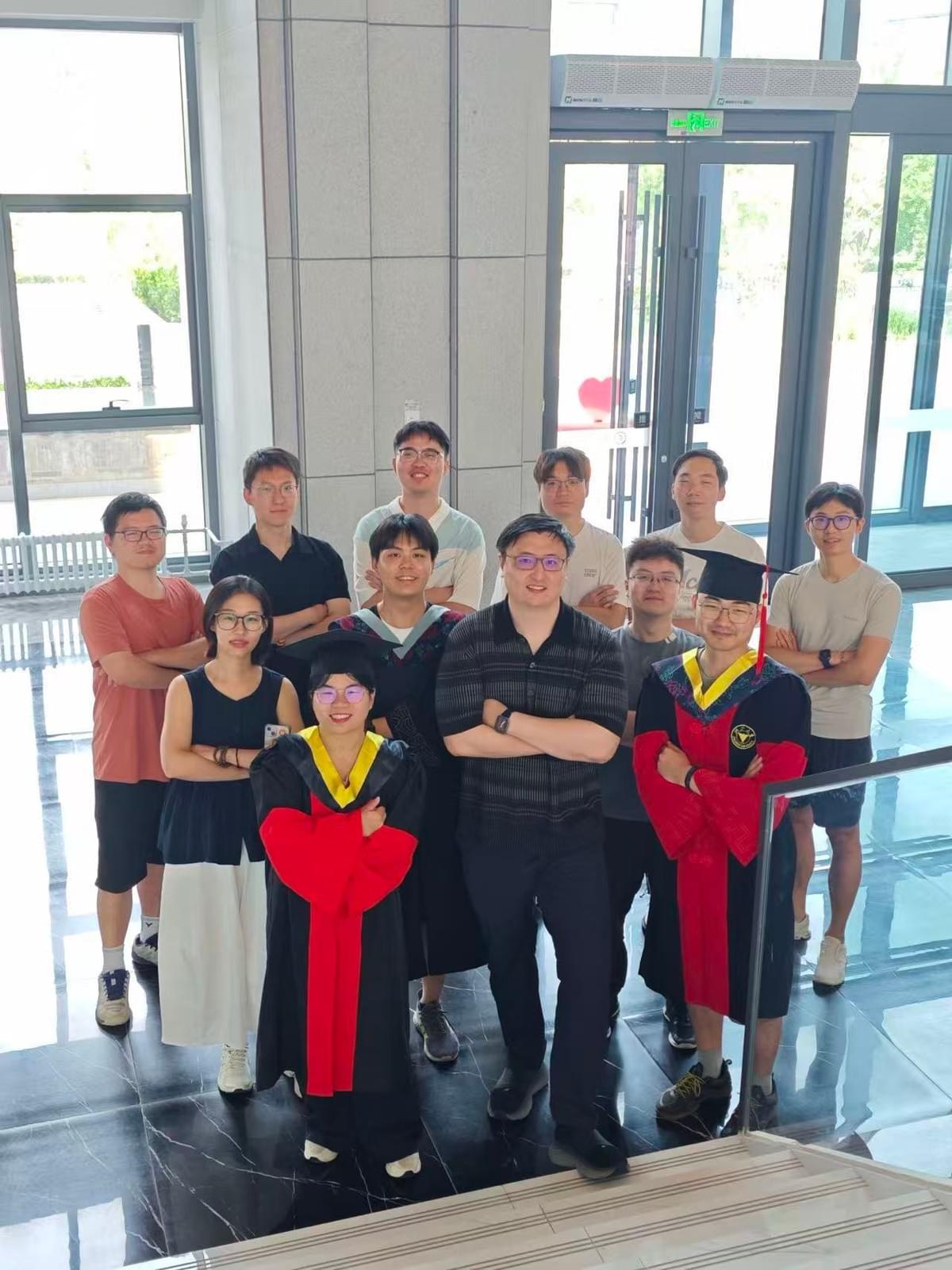
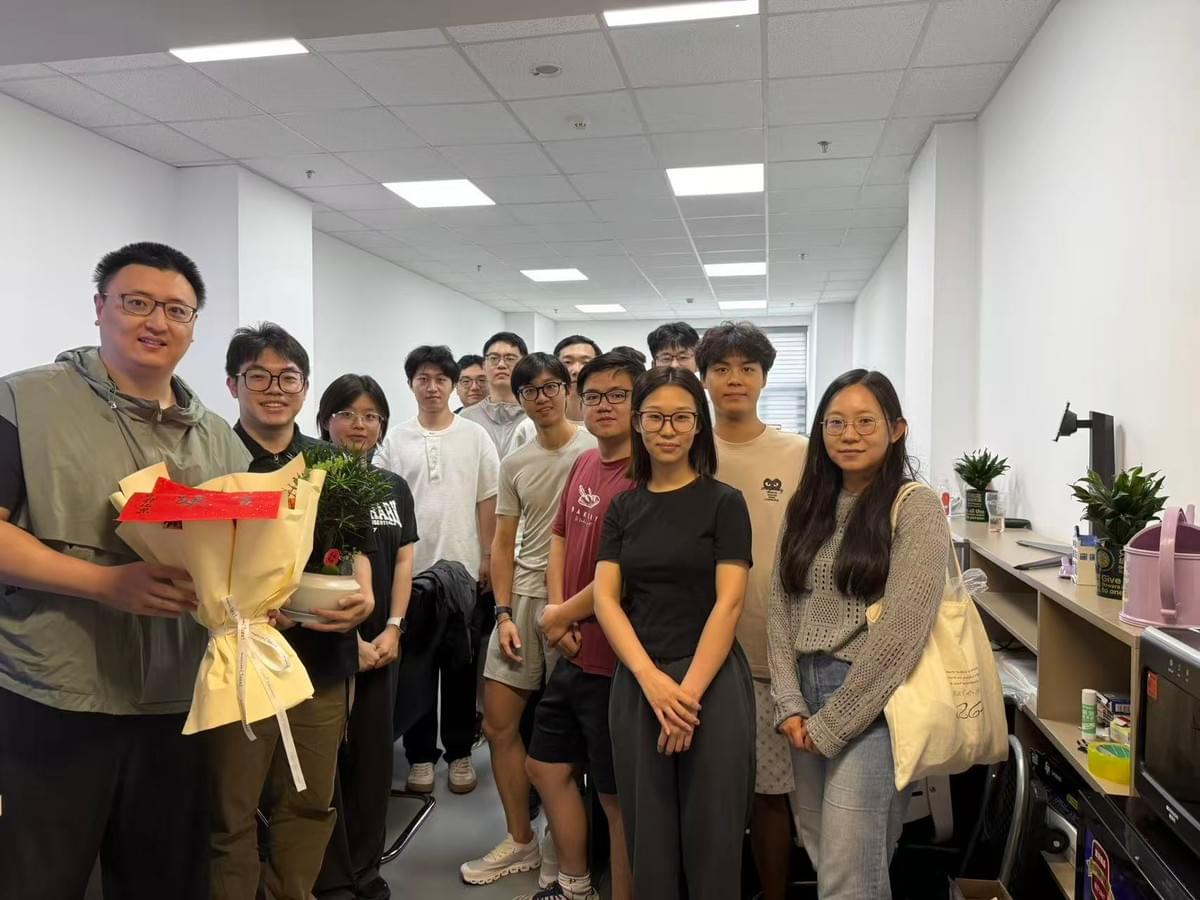





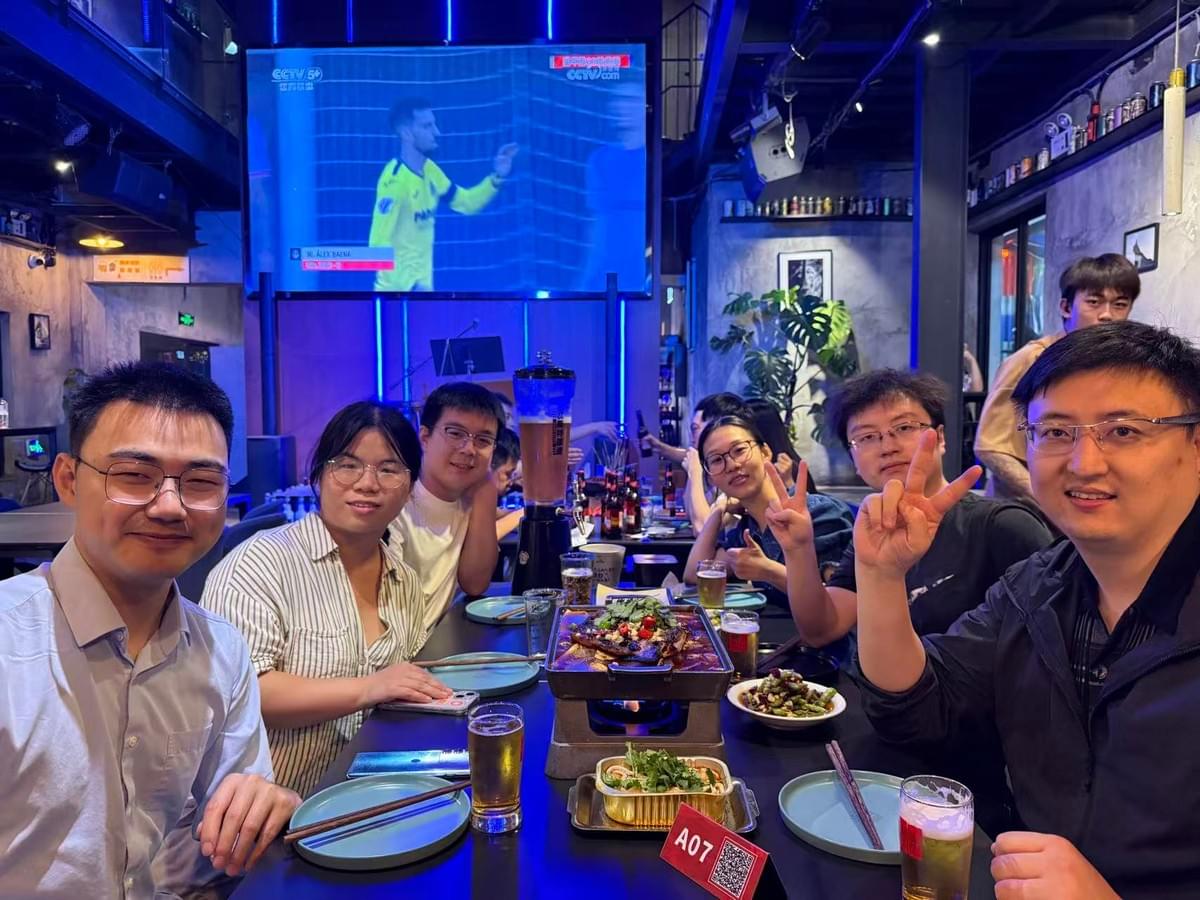

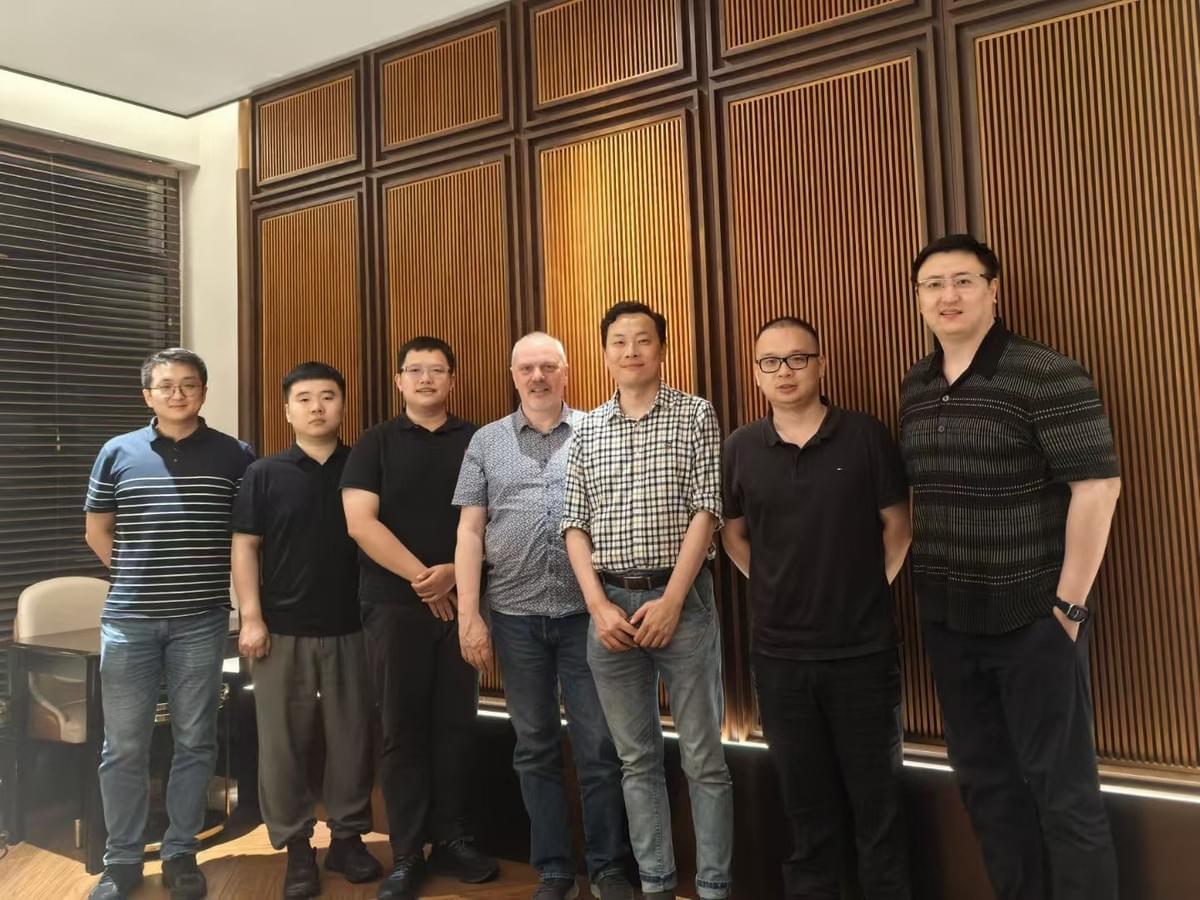
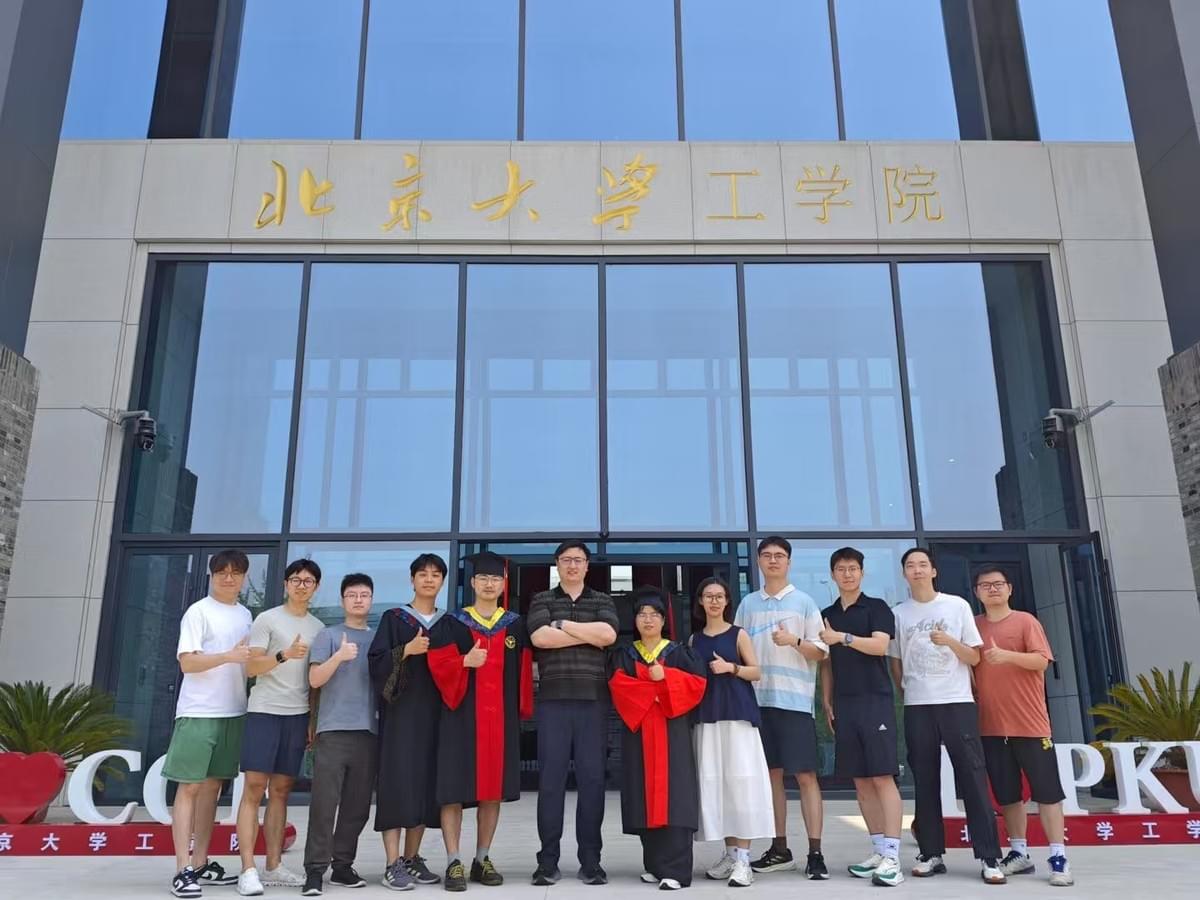
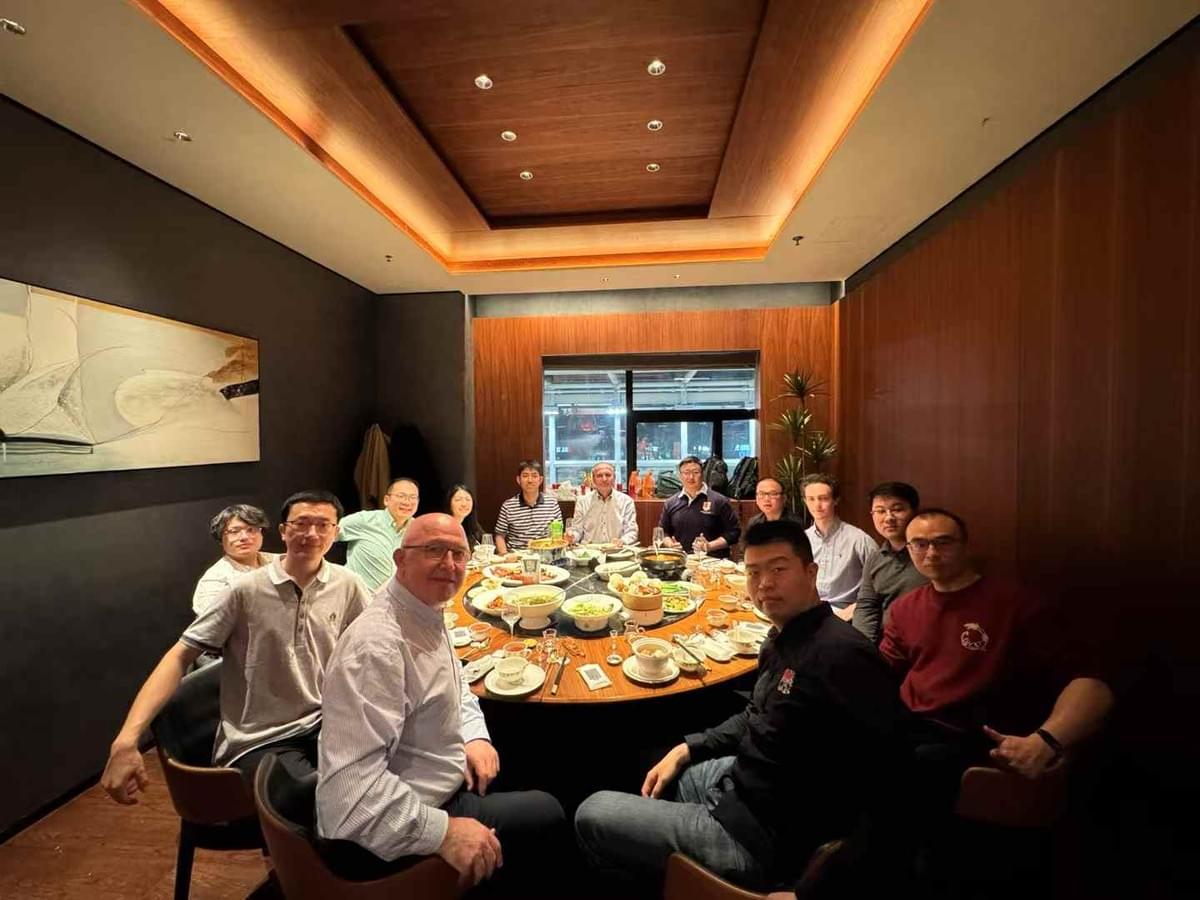
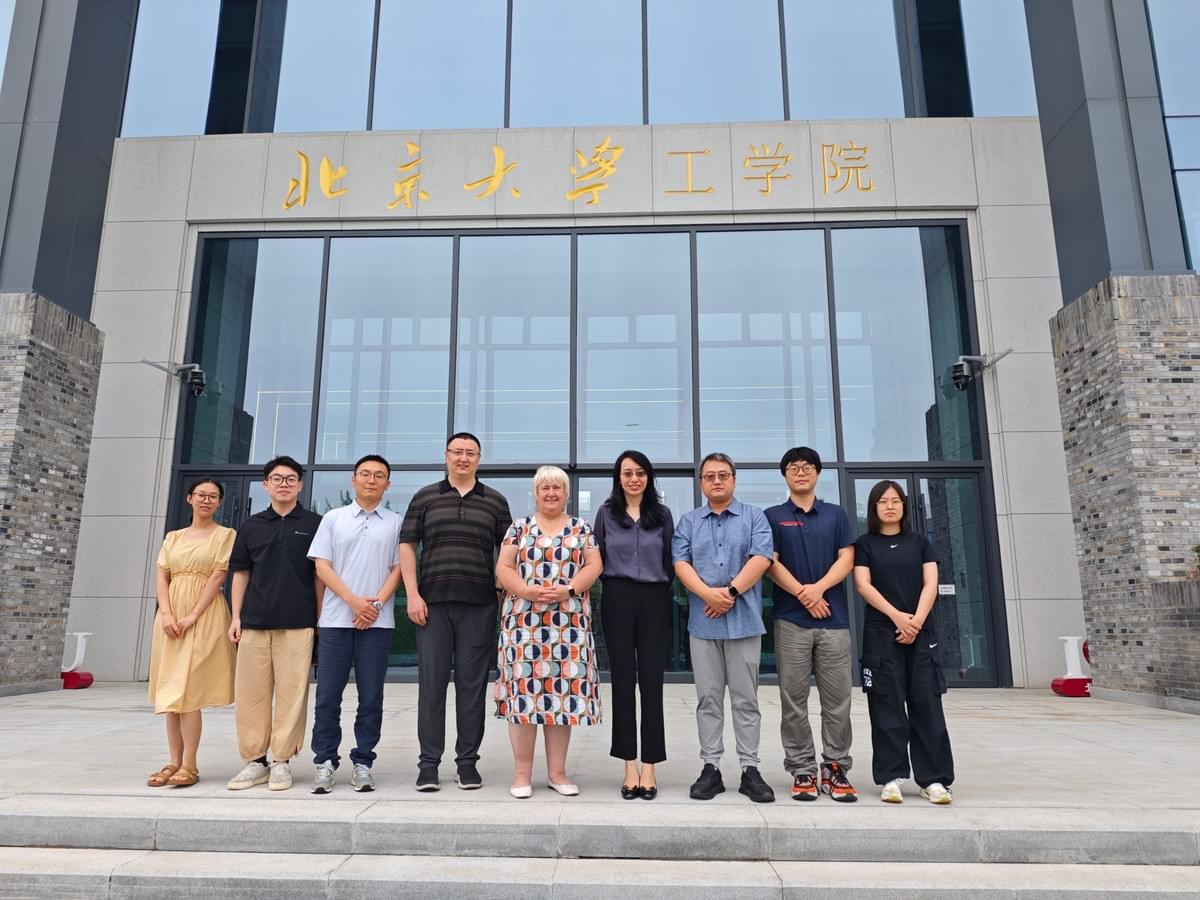
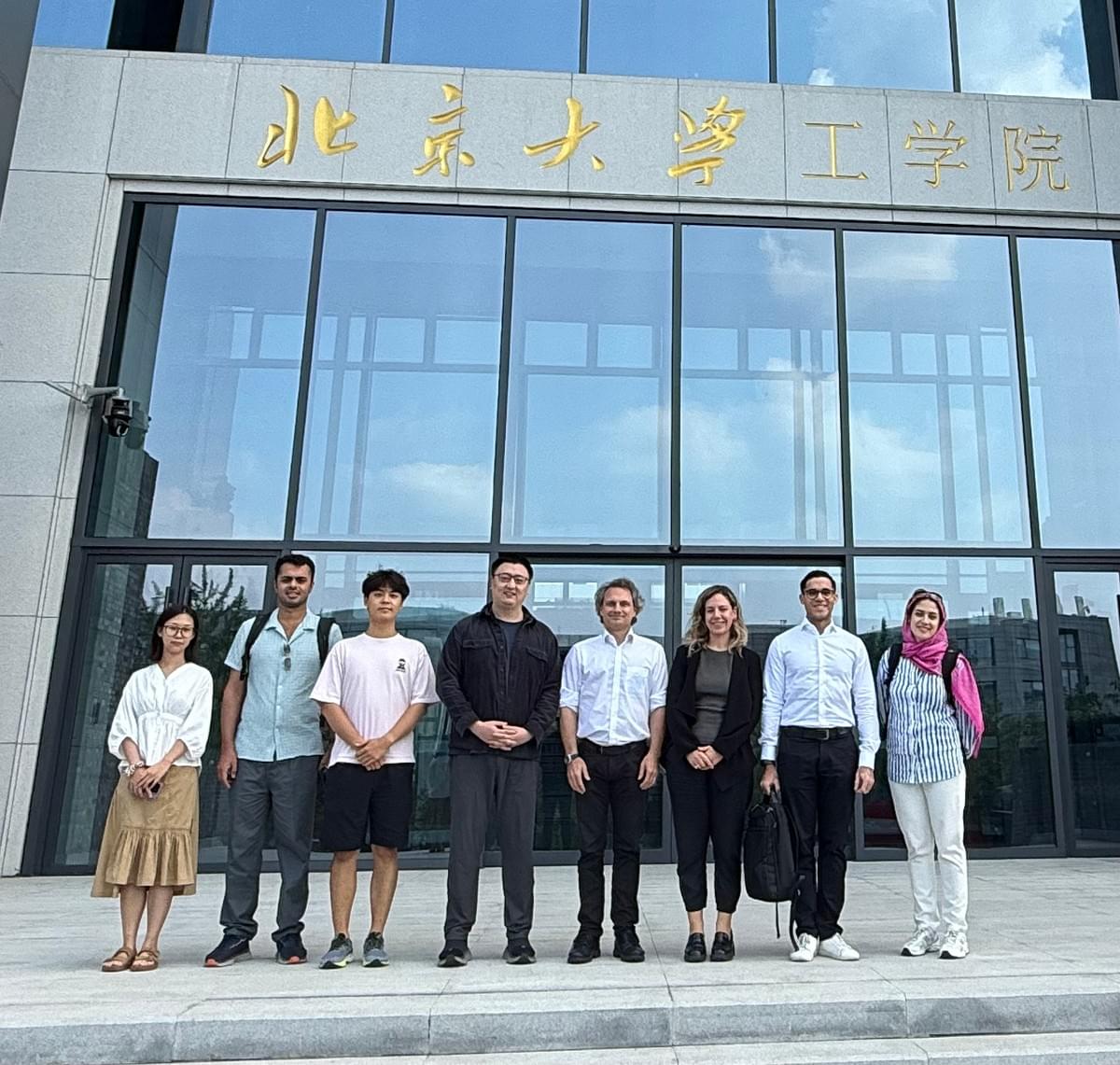
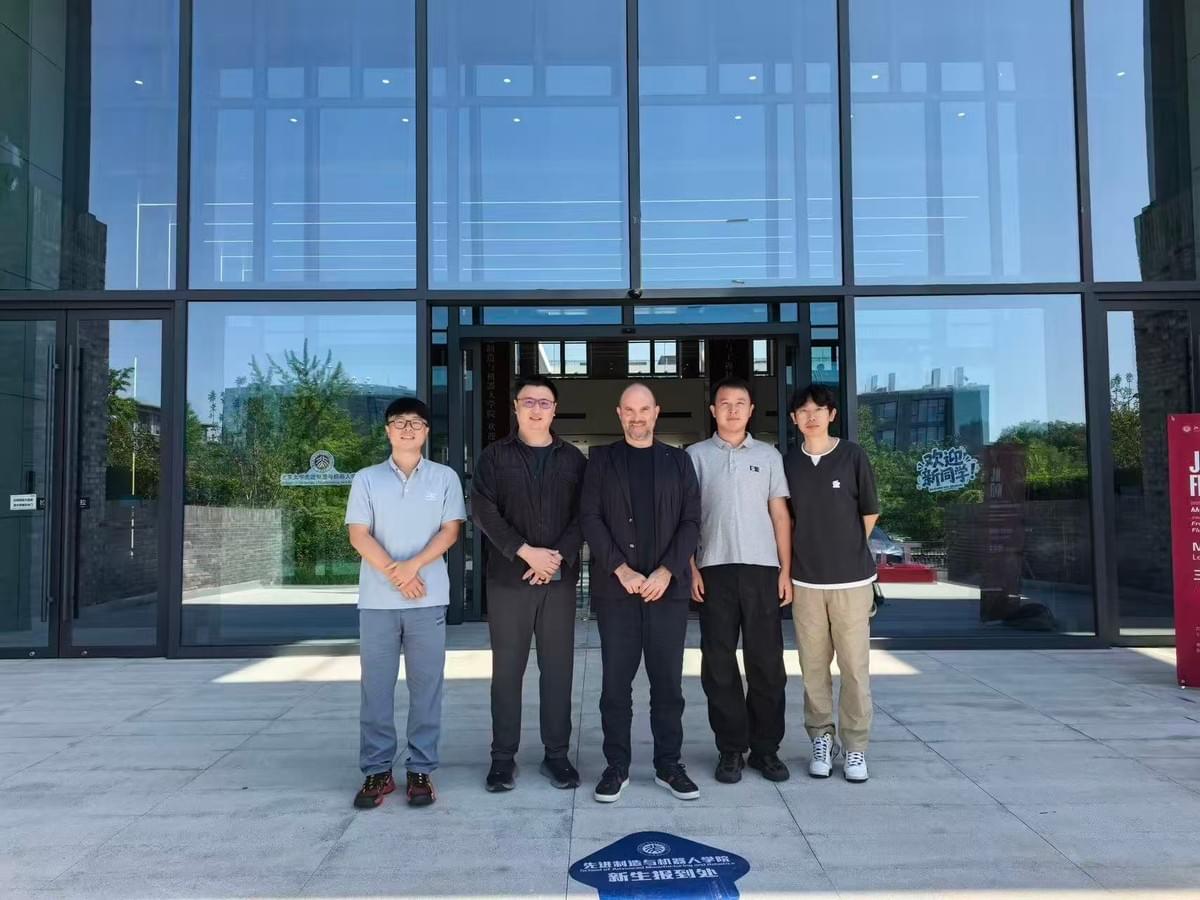
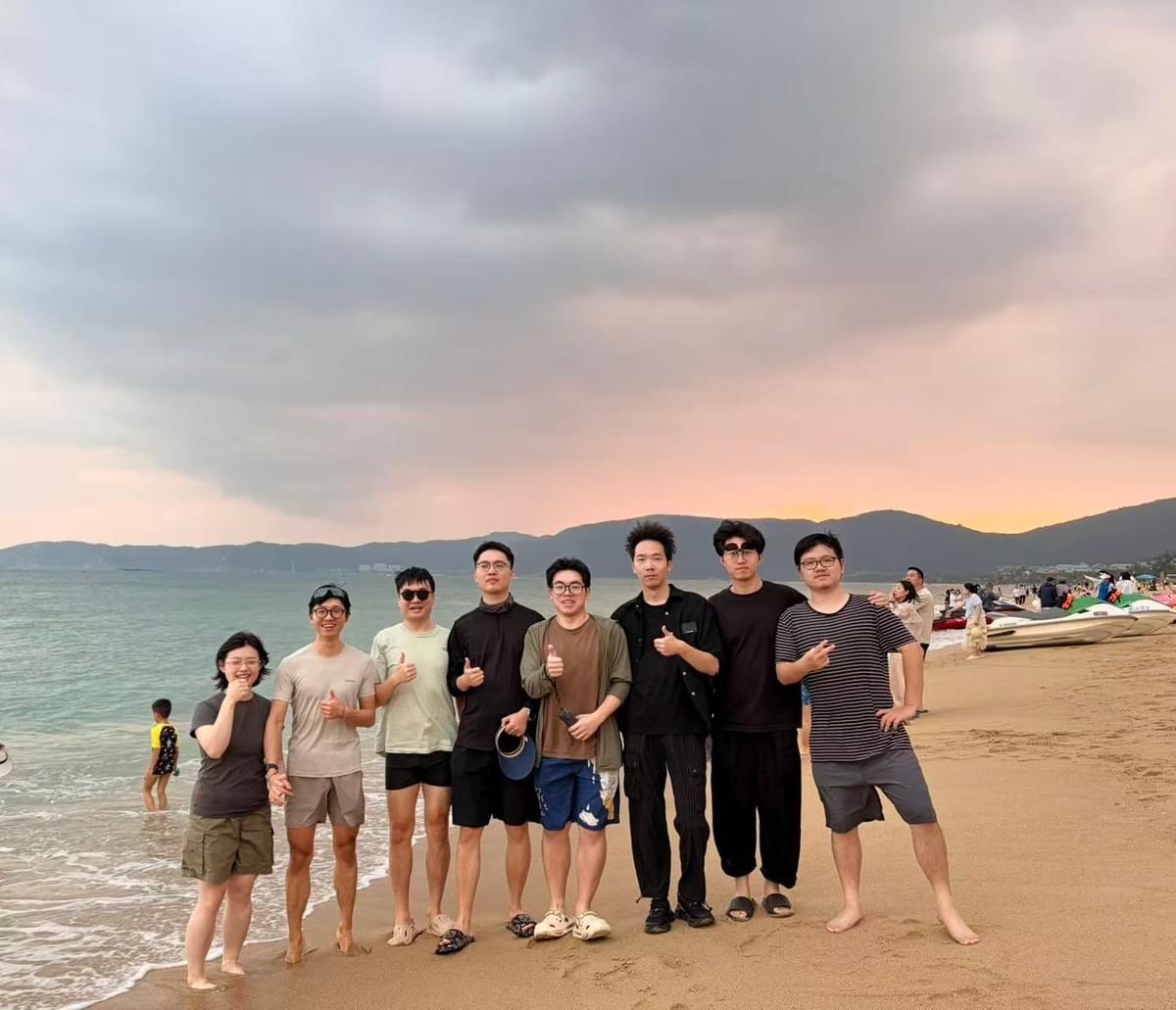
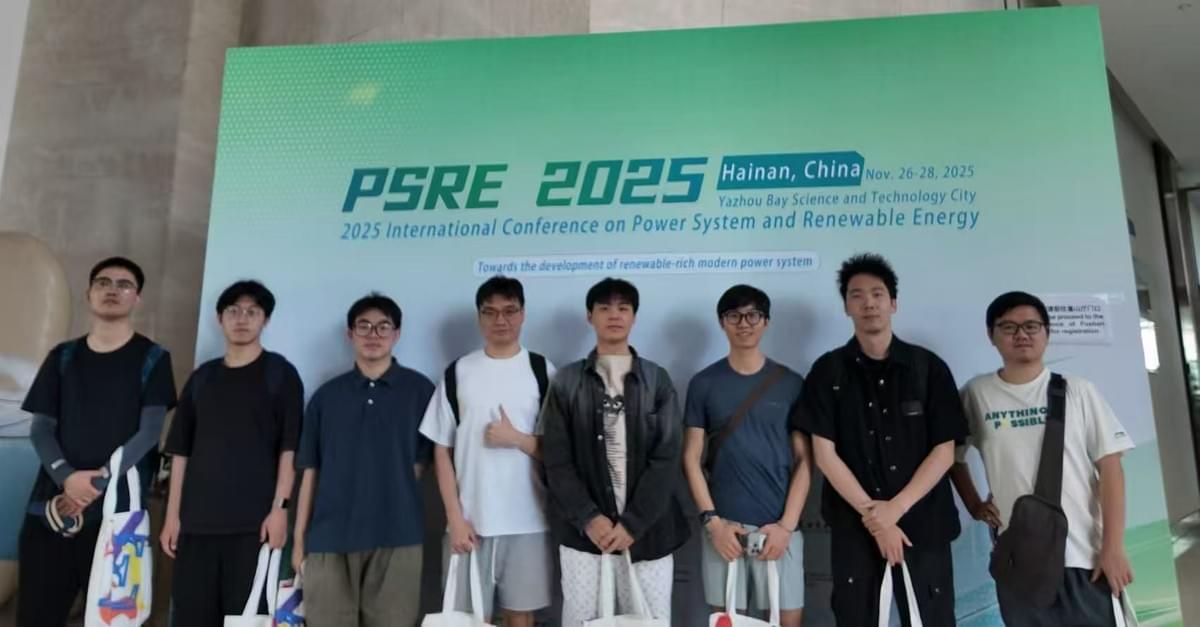
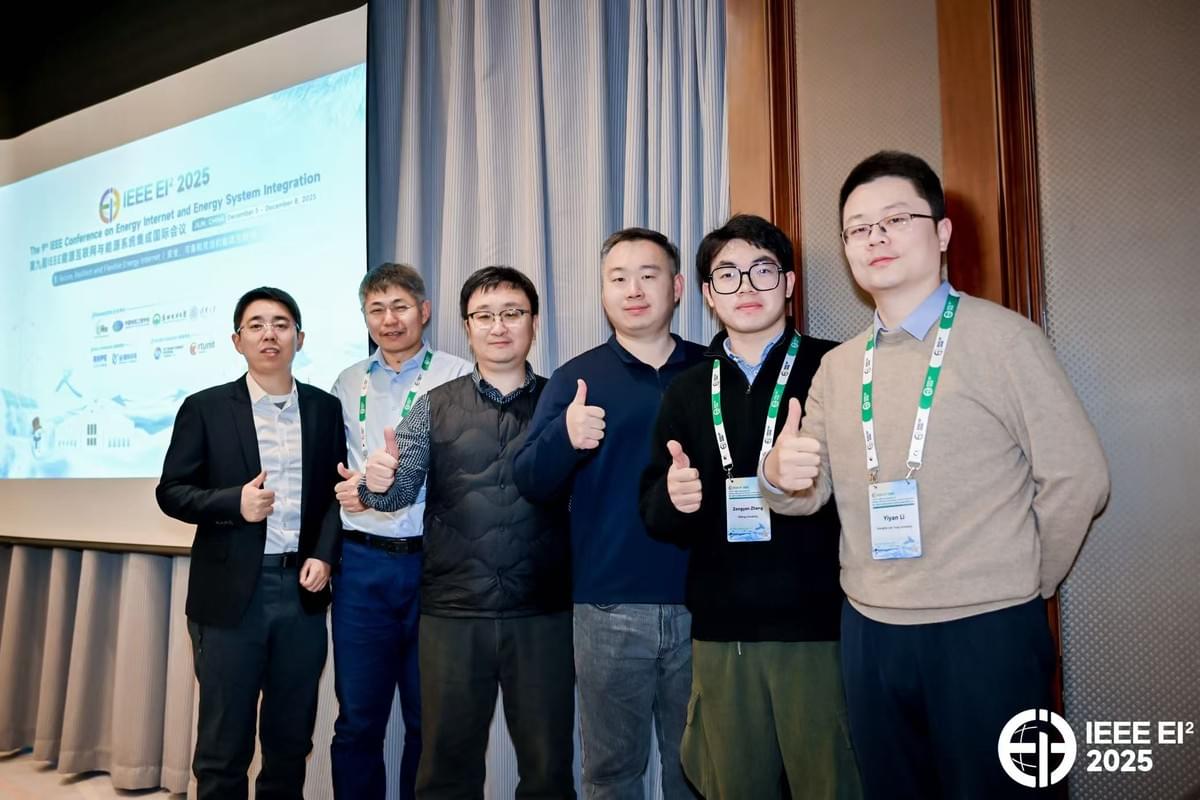
Our Publications
Preprints:
- L. Zeng, M. Sun*(Corresponding Author), “Bridge the Sim-to-Real Gap for Deep Reinforcement Learning-based Frequency Control”, in IEEE Transactions on Power Systems, Under Revision.
Selected Journals:
- H. Wu, J. Chen, P. Vaishnav, M. Sun*(Corresponding Author), M. Craig*. “Technological improvements in EV batteries offset climate-induced durability challenges”, in Nature Climate Change, Accepted, 2025.
- H. Wu, M. Sun*(Corresponding Author), M. Craig*. “Updating Global Green Hydrogen Production Costs and Configurations under Future Climates”, in The Innovation, Accepted, 2025.
- H. Wu, Q. Kong, M. Huber, M. Sun*(Corresponding Author), MT Craig*. “Climate Change Will Increase High Temperature Risks, Degradation, and Costs of Rooftop Photovoltaics Globally”, in Joule, Accepted, 2025.
- H. Zhang et al., "Decision-Focused Learning for Power System Decision-Making Under Uncertainty," in IEEE Transactions on Power Systems, doi: 10.1109/TPWRS.2025.3597806.
- C. Shen, K. Zuo and M. Sun*(Corresponding Author), "Physics-Augmented Auxiliary Learning for Power System Transient Stability Assessment," in IEEE Transactions on Industrial Informatics, vol. 21, no. 9, pp. 6811-6822, Sept. 2025.
- Z. Yu, M. Liu and M. Sun*(Corresponding Author), "Exploring Smart Grid Vulnerability Against Intelligent Inverter Parameter Tampering Attack," in IEEE Transactions on Smart Grid, doi: 10.1109/TSG.2025.3608795.
- K. Zuo, C. Shen, P. Cheng, J. Song and M. Sun*(Corresponding Author), "Probabilistic Robustness Verified Data-Driven Transient Security-Constrained Optimal Power Flow," in IEEE Transactions on Power Systems, doi: 10.1109/TPWRS.2025.3608814.
- Q. Yuan, H. Wu, S. He and M. Sun*(Corresponding Author), "PrivLoad: Privacy-preserving Load Profiles Synthesis Based on Diffusion Models," in IEEE Transactions on Smart Grid, doi: 10.1109/TSG.2025.3608960.
- R. Deng, Q. Jiang, X. Zhou, Y. Wang* and M. Sun*(Corresponding Author), "Eigenvalue-Oriented Data-Driven Small-Signal Stability Assessment for DC Microgrids," in IEEE Transactions on Power Systems, vol. 40, no. 4, pp. 3563-3575, July 2025.
- H. Wu, J. Wang, F. Teng, D. Zhang, P Cheng, Peng, G. Strbac, J. Chen, M. Sun*(Corresponding Author), "Tracking Bitcoin-Induced Carbon Trajectory in China Via Refined Spatiotemporal Assessment". Engineering, Accepted, 2024.
- X. Wan, M. Sun*(Corresponding Author), “AdapSafe2: Prior-free Safe-certified Reinforcement Learning for Multi-Area Frequency Control”, in IEEE Transactions on Power Systems, doi: 10.1109/TPWRS.2024.3483994.
- H. Wu, D. Qiu, L. Zhang, M. Sun*(Corresponding Author), "Adaptive Multi-Agent Reinforcement Learning for Flexible Resource Management in a Virtual Power Plant with Dynamic Participating Multi-Energy Buildings", in Applied Energy, Vol.374, 123998, Nov. 2024.
- Z. Zhang, M. Liu, M. Sun, etc., "Vulnerability of Machine Learning Approaches Applied in IoT-Based Smart Grid: A Review," in IEEE Internet of Things Journal, vol. 11, no. 11, pp. 18951-18975, 1 June 1, 2024.
- Q. Yuan, M. Sun*(Corresponding Author), Y. Sheng and Q. Guo, "PrivCPM: Privacy-Preserving Cooperative Pricing Mechanism in Coupled Power-Traffic Networks," in IEEE Transactions on Smart Grid, doi: 10.1109/TSG.2024.3406572.
- K. Zuo, M. Sun*(Corresponding Author), etc., "Transferability-Oriented Adversarial Robust Security-Constrained Optimal Power Flow," in IEEE Transactions on Smart Grid, doi: 10.1109/TSG.2024.3397654.
- M. Liu, F. Teng, Z. Zhang, P. Ge, M. Sun, R. Deng, P. Cheng, J Chen "Enhancing Cyber-Resiliency of DER-Based Smart Grid: A Survey," in IEEE Transactions on Smart Grid, doi: 10.1109/TSG.2024.3373008.
- R. Lu, R. Bai, R. Li, L. Zhu, M. Sun, etc., "A Novel Sequence-to-Sequence-Based Deep Learning Model for Multistep Load Forecasting," in IEEE Trans Neural Netw Learn Syst. 2024 Jan 19; PP. doi: 10.1109/TNNLS.2023.3329466.
- J. Wang, L. Chen, Z. Tan, E. Du, N. Liu, J. Ma, M. Sun, C. Li, J. Song, X. Lu, C. Tan, G. He, “Inherent Spatiotemporal Uncertainty of Renewable Power in China”, in Nature Communications, 14, 5379 (2023).
- H. Xu, B. Feng, C. Wang, C. Guo, J. Qiu, M. Sun, "Exact Box-Constrained Economic Operating Region for Power Grids Considering Renewable Energy Sources," in Journal of Modern Power Systems and Clean Energy, vol. 12, no. 2, pp. 514-523, March 2024.
- H. Xu, B. Feng, G. Huang, M. Sun, H. Xiong and C. Guo, "Convex Hull Based Economic Operating Region for Power Grids Considering Uncertainties of Renewable Energy Sources," in Journal of Modern Power Systems and Clean Energy, doi: 10.35833/MPCE.2023.000549.
- H. Zhang, R. Li, Y. Chen, Z. Chu, M. Sun and F. Teng, "Risk-Aware Objective-Based Forecasting in Inertia Management," in IEEE Transactions on Power Systems, vol. 39, no. 2, pp. 4612-4623, March 2024.
- R. Huang, M. Guo, C. Gu, S. He, J. Chen and M. Sun, "Toward Scalable and Efficient Hierarchical Deep Reinforcement Learning for 5G RAN Slicing," in IEEE Transactions on Green Communications and Networking, vol. 7, no. 4, pp. 2153-2162, Dec. 2023.
- Y. He, F. Luo, M. Sun and G. Ranzi, "Privacy-Preserving and Hierarchically Federated Framework for Short-Term Residential Load Forecasting," in IEEE Transactions on Smart Grid, vol. 14, no. 6, pp. 4409-4423, Nov. 2023.
- J. Zhu, W. Meng, M. Sun, J. Yang and Z. Song, "FLLF: A Fast-Lightweight Location Detection Framework for False Data Injection Attacks in Smart Grids," in IEEE Transactions on Smart Grid, vol. 15, no. 1, pp. 911-920, Jan. 2024.
- L. Kong, C. Yang, S. Lou, Y. Cai, X. Huang, M. Sun, "Collaborative Extraction of Intervariable Coupling Relationships and Dynamics for Prediction of Silicon Content in Blast Furnaces," in IEEE Transactions on Instrumentation and Measurement, vol. 72, pp. 1-13, 2023, Art no. 2515213.
- D. Qiu, Y. Wang, T. Zhang, M. Sun, G. Strbac, “Hierarchical multi-agent reinforcement learning for repair crews dispatch control towards multi-energy microgrid resilience,” in Applied Energy, vol. 336, 120826, 2023.
- Z. Li, Y. Liu, P. Qiu, H. Yin, X. Wan, M. Sun, “Highly transferable adversarial attack against deep-reinforcement-learning-based frequency control”. in Energy Convers. Econ. 4, pp. 202–212, 2023.
- Z. Zhang, K. Zuo, R. Deng, F. Teng and M. Sun*(Corresponding Author), "Cybersecurity Analysis of Data-Driven Power System Stability Assessment," in IEEE Internet of Things Journal, vol. 10, no. 17, pp. 15723-15735, 1 Sept.1, 2023.
- Y. Wang, D. Qiu, M. Sun, G. Strbac, Z. Gao, “Secure energy management of multi-energy microgrid: A physical-informed safe reinforcement learning approach”, in Applied Energy, vol. 335, 120759, 2023.
- G. Spyros, A. Moreira, D. Papadaskalopoulos, S. Borozan, D. Pudjianto, I. Konstantelos, M. Sun and G. Strbac, "A Machine Learning Approach for Generating and Evaluating Forecasts on the Environmental Impact of the Buildings Sector," in Energies, 16, no. 6: 2915, 2023.
- R. Lyu, H. Guo, K. Zheng, M. Sun and Q. Chen, "Co-Optimizing Bidding and Power Allocation of an EV Aggregator Providing Real-Time Frequency Regulation Service," in IEEE Transactions on Smart Grid, vol. 14, no. 6, pp. 4594-4606, Nov. 2023.
- Y. Wang, D. Qiu, Y. Wang, M. Sun and G. Strbac, "Graph Learning-Based Voltage Regulation in Distribution Networks With Multi-Microgrids," in IEEE Transactions on Power Systems, vol. 39, no. 1, pp. 1881-1895, Jan. 2024.
- T. Zhang, M. Sun*(Corresponding Author), D. Qiu, X. Zhang, G. Strbac and C. Kang, "A Bayesian Deep Reinforcement Learning-Based Resilient Control for Multi-Energy Micro-Gird," in IEEE Transactions on Power Systems, vol. 38, no. 6, pp. 5057-5072, Nov. 2023.
- D. Qiu, J. Xue, T. Zhang, J. Wang, M. Sun*(Corresponding Author), " Federated reinforcement learning for smart building joint peer-to-peer energy and carbon allowance trading," in Applied Energy, vol. 333, 120526, 2023.
- B. Li, Can Wan, F. Luo, P. Yu, M. Sun, “A bi-level transactive control model for integrating decision-making and DLMP-pricing in distribution networks,” in IET Generation, Transmission & Distribution, vol. 16, no. 19, pp. 3814-3824, Oct. 2022.
- Y. Chen, M. Sun*(Corresponding Author), Z. Chu, S. Camal, G. Kariniotakis and F. Teng, "Vulnerability and Impact of Machine Learning-Based Inertia Forecasting Under Cost-Oriented Data Integrity Attack," in IEEE Transactions on Smart Grid, vol. 14, no. 3, pp. 2275-2287, May 2023.
- R. Lu, R. Bai, Z. Luo, J. Jiang, M. Sun and H. -T. Zhang, "Deep Reinforcement Learning-Based Demand Response for Smart Facilities Energy Management," in IEEE Transactions on Industrial Electronics, vol. 69, no. 8, pp. 8554-8565, Aug. 2022.
- H. Pu, L. He, P. Cheng, M. Sun and J. Chen, "Security of Industrial Robots: Vulnerabilities, Attacks, and Mitigations," in IEEE Network, vol. 37, no. 1, pp. 111-117, January/February 2023.
- D. -W. Huang, F. Luo, J. Bi and M. Sun, "An Efficient Hybrid IDS Deployment Architecture for Multi-Hop Clustered Wireless Sensor Networks," in IEEE Transactions on Information Forensics and Security, vol. 17, pp. 2688-2702, 2022.
- L. Zeng, D. Qiu, M. Sun*(Corresponding Author), “Resilience enhancement of multi-agent reinforcement learning-based demand response against adversarial attacks,” in Applied Energy, vol. 324, 119688, 2022.
- L. Zeng, M. Sun*(Corresponding Author), X. Wan, Z. Zhang, R. Deng and Y. Xu, "Physics-Constrained Vulnerability Assessment of Deep Reinforcement Learning-Based SCOPF," in IEEE Transactions on Power Systems, vol. 38, no. 3, pp. 2690-2704, May 2023.
- J. Zhang, Y. Wang, M. Sun and N. Zhang, "Two-Stage Bootstrap Sampling for Probabilistic Load Forecasting," in IEEE Transactions on Engineering Management, vol. 69, no. 3, pp. 720-728, June 2022.
- J. Bi, F. Luo, S. He, G. Liang, W. Meng and M. Sun, "False Data Injection- and Propagation-Aware Game Theoretical Approach for Microgrids," in IEEE Transactions on Smart Grid, vol. 13, no. 5, pp. 3342-3353, Sept. 2022.
- F. Xing, S. He, M. Sun, J. Chen, "Carbon emission monitoring based on internet of things with cloud-tube-edge-end structure," in Chinese Journal on Internet of Things, vol. 6, no. 3, pp53-64, 2022.
- Z. Zhang, M. Sun*(Corresponding Author), R. Deng, C. Kang and M. -Y. Chow, "Physics-Constrained Robustness Evaluation of Intelligent Security Assessment for Power Systems," in IEEE Transactions on Power Systems, vol. 38, no. 1, pp. 872-884, Jan. 2023.
- D. Qiu, Y. Wang, T. Zhang, M. Sun and G. Strbac, "Hybrid Multiagent Reinforcement Learning for Electric Vehicle Resilience Control Towards a Low-Carbon Transition," in IEEE Transactions on Industrial Informatics, vol. 18, no. 11, pp. 8258-8269, Nov. 2022.
- D. Qiu, Y. Wang, M. Sun, G. Strbac, “Multi-service provision for electric vehicles in power-transportation networks towards a low-carbon transition: A hierarchical and hybrid multi-agent reinforcement learning approach”, in Applied Energy, vol. 313, 118790, 2022.
- P. Yu, C. Wan, M. Sun, Y. Zhou and Y. Song, "Distributed Voltage Control of Active Distribution Networks With Global Sensitivity," in IEEE Transactions on Power Systems, vol. 37, no. 6, pp. 4214-4228, Nov. 2022.
- Y. Wang, M. Jia, N. Gao, L. Von Krannichfeldt, M. Sun and G. Hug, "Federated Clustering for Electricity Consumption Pattern Extraction," in IEEE Transactions on Smart Grid, vol. 13, no. 3, pp. 2425-2439, May 2022.
- R. Lu, R. Bai, Y. Ding, M. Wei, J. Jiang, M. Sun, F. Xiao, H. Zhang, “A hybrid deep learning-based online energy management scheme for industrial microgrid,” in Applied Energy, vol. 304, 117857, 2021.
- S. Peng, M. Sun, Z. Zhang, R. Deng, P. Cheng, "Application of Machine Learning in Cyber Security of Cyber-Physical Power System", in Dianli Xitong Zidonghua/Automation of Electric Power Systems, vol. 46, no. 9, pp.200-215, 2022.
- F. Bellizio,J. Cremer, M. Sun*(Corresponding Author), G. Strbac, "A Causality Based Feature Selection Approach for Data-Driven Dynamic Security Assessment", in Electric Power Systems Research, vol. 201, 107537, 2021.
- A. Bugaje, J. Cremer, M. Sun*(Corresponding Author), G. Strbac, “Selecting decision trees for power system security assessment,” in Energy and AI, vol. 6, 100110, 2021.
- C. Zhang, F. Luo, M. Sun*(Corresponding Author)and G. Ranzi, "Modeling and Defending Advanced Metering Infrastructure Subjected to Distributed Denial-of-Service Attacks," in IEEE Transactions on Network Science and Engineering, vol. 8, no. 3, pp. 2106-2117, 1 July-Sept. 2021.
- Y. Wang, I. L. Bennani, X. Liu, M. Sun and Y. Zhou, "Electricity Consumer Characteristics Identification: A Federated Learning Approach," in IEEE Transactions on Smart Grid, vol. 12, no. 4, pp. 3637-3647, July 2021.
- T. Zhang, M. Sun*(Corresponding Author), J. L. Cremer, N. Zhang, G. Strbac and C. Kang, "A Confidence-Aware Machine Learning Framework for Dynamic Security Assessment," in IEEE Transactions on Power Systems, vol. 36, no. 5, pp. 3907-3920, Sept. 2021.
- N. Huyghues-Beaufond, S. Tindemans, P. Falugi, M. Sun, G. Strbac, "Robust and automatic data cleansing method for short-term load forecasting of distribution feeders," in Applied Energy, vol. 261, 114405, 2020.
- Y. Ye, D. Qiu, M. Sun*(Corresponding Author), D. Papadaskalopoulos and G. Strbac, "Deep Reinforcement Learning for Strategic Bidding in Electricity Markets," in IEEE Transactions on Smart Grid, vol. 11, no. 2, pp. 1343-1355, March 2020.
- C. Cheng, G. Ma, Y. Zhang, M. Sun, F. Teng, H. Ding, Y. Yuan, "A Deep Learning-Based Remaining Useful Life Prediction Approach for Bearings," in IEEE/ASME Transactions on Mechatronics, vol. 25, no. 3, pp. 1243-1254, June 2020.
- M. Sun, T. Zhang, Y. Wang, G. Strbac and C. Kang, "Using Bayesian Deep Learning to Capture Uncertainty for Residential Net Load Forecasting," in IEEE Transactions on Power Systems. vol. 35, no. 1, pp. 188-201, Jan. 2020.
- M. Sun, I. Konstantelos and G. Strbac, "A Deep Learning-Based Feature Extraction Framework for System Security Assessment," in IEEE Transactions on Smart Grid, vol. 10, no. 5, pp. 5007-5020, Sept. 2019.
- Y. Wang, Q. Chen, N. Zhang, C. Feng, F. Teng, M. Sun. C. Kang. "Fusion of the 5G communication and the ubiquitous electric internet of things: application analysis and research prospects," in Power system technology, vol. 43, no.5, 1575-1585, 2019.
- M. Sun, P. Djapic, M. Aunedi, D. Pudjianto, G. Strbac, "Benefits of smart control of hybrid heat pumps: An analysis of field trial data," in Applied Energy, vol. 247, pp. 525-536, Aug. 2019.
- M. Sun, Y. Wang, F. Teng, Y. Ye, G. Strbac and C. Kang, "Clustering-Based Residential Baseline Estimation: A Probabilistic Perspective," in IEEE Transactions on Smart Grid. vol. 10, no. 6, pp. 6014-6028, Nov. 2019.
- M. Sun, F. Teng, X. Zhang, G. Strbac and D. Pudjianto, "Data-Driven Representative Day Selection for Investment Decisions: A Cost-Oriented Approach," in IEEE Transactions on Power Systems, vol. 34, no. 4, pp. 2925-2936, Jul. 2019.
- M. Sun, G. Strbac, P. Djapic and D. Pudjianto, "Preheating Quantification for Smart Hybrid Heat Pumps Considering Uncertainty," in IEEE Transactions on Industrial Informatics, vol. 15, no. 8, pp. 4753-4763, Aug. 2019.
- M. Sun, J. Cremer, Goran Strbac, "A novel data-driven scenario generation framework for transmission expansion planning with high renewable energy penetration," in Applied Energy, vol. 228, pp. 546-555, Oct. 2018.
- Y. Wang, D. Gan, M. Sun, N. Zhang, Z. Lu, C. Kang, "Probabilistic individual load forecasting using pinball loss guided LSTM, " in Applied Energy, vol. 235, pp. 10-20, 2019.
- I. Konstantelos, M. Sun*(Corresponding Author), S. H. Tindemans, S. Issad, P. Panciatici and G. Strbac, "Using Vine Copulas to Generate Representative System States for Machine Learning," in IEEE Transactions on Power Systems, vol. 34, no. 1, pp. 225-235, Jan. 2019.
- M. Sun, Y. Wang, G. Strbac and C. Kang, "Probabilistic Peak Load Estimation in Smart Cities Using Smart Meter Data," in IEEE Transactions on Industrial Electronics, vol. 66, no. 2, pp. 1608-1618, Feb. 2019.
- Y. Wang, Q. Chen, M. Sun, C. Kang and Q. Xia, "An Ensemble Forecasting Method for the Aggregated Load With Subprofiles," in IEEE Transactions on Smart Grid, vol. 9, no. 4, pp. 3906-3908, July 2018.
- M. Sun, F. Teng, I. Konstantelos, G. Strbac, "An objective-based scenario selection method for transmission network expansion planning with multivariate stochasticity in load and renewable energy sources," in Energy, vol. 145, pp. 871-885, Feb. 2018.
- M. Sun, I. Konstantelos and G. Strbac, "C-Vine Copula Mixture Model for Clustering of Residential Electrical Load Pattern Data," in IEEE Transactions on Power Systems, vol. 32, no. 3, pp. 2382-2393, May 2017.
Selected Conferences:
- Z. Yang, X. Wan, M. Sun*(Corresponding Author), “Energy Consumption Analysis of Deep Reinforcement Learning”, in ICAE 2025, 2025.
- X. Wan, C. Yang, C. Yang, J. Song, M. Sun*(Corresponding Author), “Fuzzify Uncertainty: Leverage Fuzzy-Logic for Robust Safe Reinforcement Learning”, in NeurIPS 2025, 2025.
- X. Wan, W. Xu, C. Yang, M. Sun*(Corresponding Author), “Think Twice, Act Once: A Co-Evolution Framework of LLM and RL for Large-Scale Decision Making,” ICML-25, 2025.
- X. Wan, C. Yang, C. Yang, J. Song, M. Sun*(Corresponding Author), “SrSv: Integrating Sequential Rollouts with Sequential Value Estimation for Multi-agent Reinforcement Learning,” AAAI-25, 2024.
- X. Wan, L. Zeng, M. Sun*(Corresponding Author), "Exploring the Vulnerability of Deep Reinforcement Learning-based Emergency Control for Low Carbon Power Systems", the 31st International Joint Conference on Artificial Intelligence (IJCAI 22), 2022.
- X. Wan, M. Sun*(Corresponding Author), B. Chen, Z. Chu, and F. Teng, “AdapSafe: Adaptive and Safe-Certified Deep Reinforcement Learning-Based Frequency Control for Carbon-Neutral Power Systems,” Proceedings of the AAAI Conference on Artificial Intelligence, 37(4), 5294-5302, 2023.
- L. Du, M. Chen, M. Sun, S. Ji, P. Cheng, J. Chen, Z. Zhang, "ORL-AUDITOR: Dataset Auditing in Offline Deep Reinforcement Learning", in Network and Distributed System Security (NDSS) Symposium 2024, 26 February- 1 March 2024, San Diego, CA, USA.
- L. Du, Q. Yuan, M. Chen, M. Sun, P. Cheng, J. Chen, Z. Zhang, "PARL: Poisoning Attacks Against Reinforcement Learning-based Recommender Systems", in The 19th ACM ASIA Conference on Computer and Communications Security, Singapore, 2024.
- Q. Yuan, Z. Zhang, L. Du, P. Cheng, M. Sun*(Corresponding Author), "PrivGraph: Differentially Private Graph Data Publication by Exploiting Community Information”, in Proceedings of the 32nd USENIX Security Symposium, Anaheim, CA, USA, August 9–11, 2023.
- J. Bi, S. He, F. Luo, J. Chen, D. -W. Huang and M. Sun, "Differential Game Approach for Modelling and Defense of False Data Injection Attacks Targeting Energy Metering Systems," 2022 IEEE International Conference on Trust, Security and Privacy in Computing and Communications (TrustCom), Wuhan, China, pp. 97-104, 2022.
- Z. Zhang, Q. Yang, S. He, M. Sun and J. Chen, "Wireless Transmission of Images with the Assistance of Multi-level Semantic Information," 2022 International Symposium on Wireless Communication Systems (ISWCS), Hangzhou, China, pp. 1-6, 2022.
- J. Zhu, W. Meng, M. Sun and J. Yang, "A Fast Locational Detection Model for False Data Injection Attack Based on Edge Computing," 2022 IEEE 17th International Conference on Control & Automation (ICCA), Naples, Italy, 2022, pp. 124-129.
- M. Liu, Z. Jin, J. Xia, M. Sun, R. Deng and P. Cheng, "Demo Abstract: A HIL Emulator-Based Cyber Security Testbed for DC Microgrids," IEEE INFOCOM 2021 - IEEE Conference on Computer Communications Workshops (INFOCOM WKSHPS), Vancouver, BC, Canada, 2021, pp. 1-2.
- M. Liu, Z. Cheng, Z. Zhang, M. Sun, R. Dengm P. Cheng, M. Chow, "A Multi-Agent System Based Hierarchical Control Framework for Microgrids," 2021 IEEE Power & Energy Society General Meeting (PESGM), Washington, DC, USA, 2021, pp. 01-05.
- G. Gosnell, R. Martin, M. Muuls, Q. Coutellier, G. Strbac, M. Sun, and S. Tindermans, Making smart meters smarter the smart way. CEP Discussion Papers (1602). Centre for Economic Performance, LSE, London, UK, 2019.
- Y. Yang, J. Hao, M. Sun, Z. Wang, G. Strbac, C. Fan, "Recurrent Deep Multiagent Q-Learning for Autonomous Brokers in Smart Grid", IJCAI 18, 2018.
- Y. Yang, J. Hao, M. Sun, Z. Wang, G. Strbac, "Deep Multiagent Q-Learning for Autonomous Agents in Future Smart Grid", AAMAS 2018 Workshop, 2018.
- J. Zhang, Y. Wang, M. Sun, N. Zhang and C. Kang, "Constructing Probabilistic Load Forecast From Multiple Point Forecasts: A Bootstrap Based Approach," 2018 IEEE Innovative Smart Grid Technologies - Asia (ISGT Asia), Singapore, 2018, pp. 184-189.
- M. Sun, I. Konstantelos and G. Strbac, "Transmission network expansion planning with stochastic multivariate load and wind modeling," 2016 International Conference on Probabilistic Methods Applied to Power Systems (PMAPS), Beijing, China, pp. 1-7, 2016.
- M. Sun, I. Konstantelos and G. Strbac, "Analysis of diversified residential demand in London using smart meter and demographic data," 2016 IEEE Power and Energy Society General Meeting (PESGM), Boston, MA, USA, 2016, pp. 1-5.
- M. Sun, I. Konstantelos, S. Tindemans and G. Strbac, "Evaluating composite approaches to modelling high-dimensional stochastic variables in power systems," 2016 Power Systems Computation Conference (PSCC), Genoa, Italy, pp. 1-8, 2016.
Reports:
- Konstantelos, M. Sun, S. Tindemans, G. Strbac and S. Issad, “Methodology for Sampling of External Stochastic Variables,” Deliverable D4.1 Report for the ’iTesla’ FP7 project: Imperial College London, 2013.
- Konstantelos, M. Sun, and G. Strbac, “Quantifying demand diversity of households,” Report for the ’Low Carbon London’ LCNF project: Imperial College London, 2014.
- G Strbac, M Sun, P Djapic, M Aunedi, “Analysis of trial data”, Report for FREEDOM project, 2018.
- G Strbac, R Moreira, M Aunedi, M Sun, “Commercial strategies for coordinated control of hybrid heat pumps”, Report for FREEDOM project, 2018.
Teaching

Industrial Artificial Intelligence Security and Privacy (PKU)
08617210

Theory and Advanced Technology for Cyber-physical Systems (ZJU)

Introduction to Big Data Analysis and Application (ZJU)

EE9-FPN1-01 Role and Value of Smart Grid Technologies (ICL)
Projects
- 2026- 2030, PI, NSFC Major Program, Dynamic Security Management for Low-Carbon Computing Power Service Systems, 2.34million CNY, NSFC.
- 2026-2029, PI, NSFC General Program, Cross-domain Security Risk Identification and Collaborative Governance in Intelligent Decision-making for New Power System, 400,000 CNY, NSFC.
- 2025-2028, PI, National Science and Technology Major Project (Sub-project), Multi-agent-based Collaborative Decision Making for Complex Power System Scheduling, 20.5 million CNY, NKRDP
- 2025-2026, PI, AI-Based Dispatching Technology for Coordinated Decision-Making in Smart City Main-Distribution-Microgrid Systems, 2.2 million CNY, State Grid Hebei Electric Power Company Limited
- 2025, PI, Power-Computing Network Data Interaction Assisted Verification Service, 285000 CNY, China Electric Power Research Institute
- 2025, PI, UCL-Peking University Strategic Partner Funds, Sustaining Electric Mobility: Addressing EV Battery Degradation in the Context of Climate Change, 20,000 GBP, UCL and PKU
- 2024-2026, PI, PKU Research Funding, 1 million CNY, Peking University
- 2022-2025, PI, Low Carbon Power System Intelligent Decision Making, 3 million CNY, NSFC
- 2022-2025, PI, Physics‑integrated Data‑driven Methods for Resilient Transient Stability Assessment of Large‑scale Power Systems, 300,000 CNY, NSFC
- 2022-2025, CO-I, DATALESs: DATA‑analytics for enhanced operation of Local Energy Systems from cyber‑physical‑social perspectives, 8 million CNY, NSFC-NWO
- 2020-2022, PI, Data-Driven Decision Making for Low Carbon Energy Systems, 450,000 CNY, CAST
- 2021-2024, CO-I, Mobile Edge Intelligent Networks for Smart Services with Efficient Perception‑Access‑Processing Mechanisms, 2.6 million CNY, NSFC
- 2021-2025, CO-I, Industrial Wireless Control System, 7 million CNY, NKRDP
- 2023-2026, CO-I, Research on Multi-Component High-Precision Integration Technology and Development of Composite Sensors,8.8 million CNY, NKRDP
- 2020-2022, CO-I, ICT-enabled Demand Side Management for Cyber-Physical Energy Systems, Newton Advanced Fellowships, 1 million CNY, NSFC-The Royal Society (UK)
- 2022-2025, PI, AI-based Integrated Energy System Operation and Control, Zhejiang Province Ten Thousand Talents Plan, 800,000 CNY, Zhejiang Province
- 2023-2025, PI, Research on the security of artificial intelligence systems for dynamic stability assessment of low carbon power systems, 300,000 CNY, NSFC Zhejiang
- 2019-2025, PI, ZJU Hundred Talents Program Funding, 3 million CNY, Zhejiang University
- 2020-2021, PI, Federated Learning‑Based EV Charging Scheduling Considering Data Privacy, 150,000 CNY, CCF‑Tencent
- 2022-2023, CO-I, Zhejiang University- Windey Smart Energy Research Center, 12 million CNY, Windey
- 2022-2024, CO-I, Data-Driven Carbon Footprint Calculation and Spatial-temporal Attribution Analysis, 2.64 million CNY, State Grid (China)
- 2021, PI, Real-time Analysis of Enterprise Carbon Emission Data, 300,000 CNY, Zhejiang Provincial Department of Ecological Environment
- 2022-2023, PI, Integrated Energy System Operation for the Future Smart Community, 438,000 CNY, Zhejiang Zheneng Electric Power Co. LTD.
- 2022-2023, PI, Safety and Security Analysis for Large-scale Power Systems Real-time Operation and Control, 420,000 CNY, Alibaba
- 2022, PI, Zero-carbon Peer-to-peer Energy Trading System Based on Federated Reinforcement Learning Technology, 100,000 CNY, ZJU-USYD
- 2021, PI, Intelligent Optimal Control for Electric-Vehicle-Grid Integration to Support Green Recovery from COVID-19 Crisis, 100,000 CNY, ZJU-UCL
Services
Journal:
- 2025- Present, IEEE Trans. on Power Systems, Associate Editor
- 2023- Present, IEEE Trans. on Industrial Informatics, Associate Editor
- 2020- Present, IET Smart Grid, Associate Editor
- 2023, Applied Energy, Leading Guest Editor
- 2023, Advances in Applied Energy, Leading Guest Editor
- 2022, IET Energy Conversion and Economics, Guest Editor
- 2021, IET Energy Systems Integration, Guest Editor
- 2021, CMP Chinese Journal of Electrical Engineering, Guest Editor
- 2019, International Trans. on Electrical Energy Systems, Guest Editor
Conference:
- 2025, AAAI 26, Senior PC
- 2022, IAS Industrial and Commercial Power System Aisa, Committee Chair
- 2022, CAA Youth e-Summit, Program Chair
- 2021, Chinese Automation Congress Workshop: “Cyber-Physical Security under the Target of Carbon Neutrality ”, Co-chair
- 2021, CCF-YOCSEF: “AI for the future: Performance or Security?”, Co-chair
- 2019, Global Automation & Control Workshop, Program Chair
Contact
We are hiring Research assistants, Master Students, PhD Students, and Postdocs. Welcome to join us!
Room 2056, ENN Engineering Building, No.60 Yannan Yuan, Haidian District, Beijing, China, 100084Mon-Fri, 9am-5pm010-62753550










